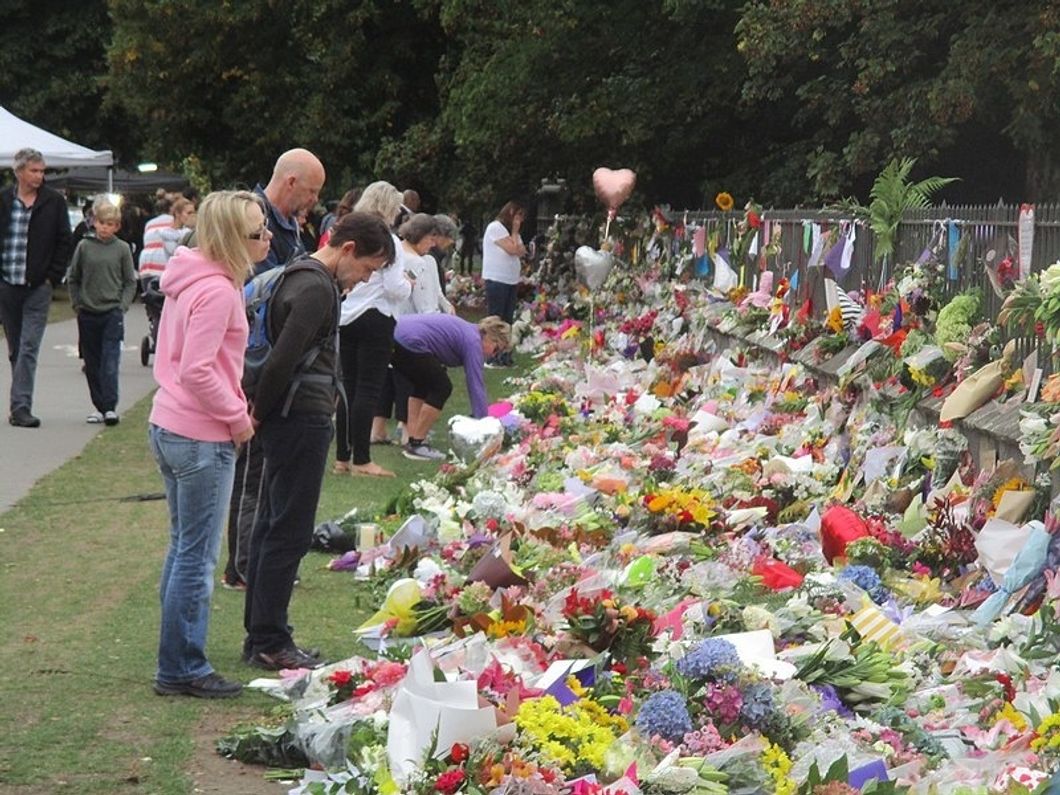We all heard about the horrific and evil New Zealand mosque shooting carried out by a white supremacist. Fifty people were killed while practicing their Muslim faith and 50 more were injured. The shooter partook in the gross action of live streaming his attack, which social media platforms have been scrambling to take down.
Stories and incidents like these are heartbreaking. They linger on the mind for days, and even weeks. In our fast-paced news world now, it is hard to fully mourn before the next story arises. We all have mixed reactions to these events. We blame others who had nothing to do with the shooting. We express our thoughts and prayers. We blame firearms. All these reactions are understandable, given that emotions are high. However, there is one reaction that needs to be corrected, and that is plastering the name and face of the shooter everywhere.
Showing the name and face of the shooter is actually a negative thing. Yes, we are all curious as to who undertook the attack. We want to know their name, what they look like, what they believed, and where they came from. All of this information is necessary for a criminal investigation, of course. But for the media, it is not necessary for them to report the perpetrator's name and face, even though they have the right to.
Mass shooters love attention. For whatever purpose it serves, whether to expand a sick cause they have or just to become infamous, they soak up the attention. This desire is the reason why many of them have released their personal manifestos before committing the shooting. It's why they laugh or smile in the courtroom during their hearing. Projecting their names and faces on social media and mainstream media just grants them the attention they want. It gives them the fame they don't deserve.
Not only does this popularize the shooter, but it also may tip off other evil attention-seekers to carry out similar attacks. In 2017, an open letter was signed by 147 psychologists, criminologists, and sociologists asking the media to stop reporting the names and faces of mass shooters. The signatories include cognitive psychologist Steven Pinker of Harvard and Katherine Newman, an expert on violence at the University of Massachusetts Amherst.
An interesting part of the letter reads, "Some of us believe that by denying mass shooters fame, we would deter some future fame-seekers from attacking. Some of us believe that by no longer creating de facto celebrities out of killers, we would reduce contagion and copycat effects. Some of us believe that by no longer rewarding the deadliest offenders with the most personal attention, we would reduce the competition among them to maximize victim fatalities."
The media are already careful in reporting suicides after research suggested a link between a rise in suicide rates and reporting. Given this practice, the media could easily steer away from showing the names and faces of mass shooters. There are some media outlets, however, that don't mention the names. The Daily Wire, operated by Ben Shapiro and Jeremy Boreing, have a policy that prohibits them from saying a shooter's name on any of their podcasts and articles.
The names that we should mention are the ones that belong to the victims. They are the ones that deserve remembrance and respect. We should name the brave people who tried and/or succeeded in stopping the shooter. They deserve our recognition and fame. We need to focus on them and their stories and the lives they lived.






 The minimum wage is not a living wage.
StableDiffusion
The minimum wage is not a living wage.
StableDiffusion
 influential nations
StableDiffusion
influential nations
StableDiffusion












